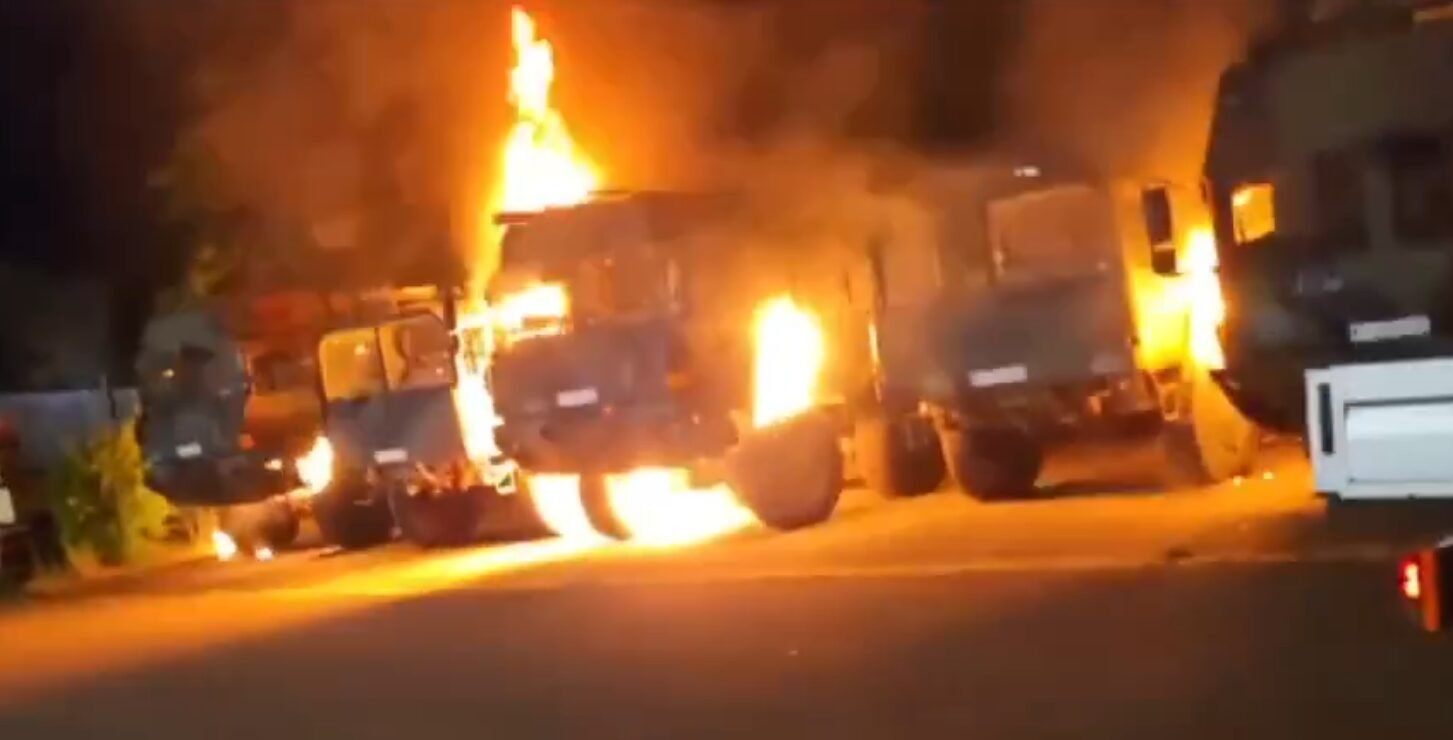On the night of **June 22, 2025**, a fire heavily damaged four Bundeswehr military trucks parked at a civilian workshop in **Erfurt**, Thuringia.
The authorities, still investigating, suspect a well-organized act of sabotage, possibly coordinated by external agents. According to a video spread on a Telegram channel — accompanied by claims in Russian language — the equipment would have been **destroyed as ‘destined for Ukraine’ because considered ‘useless’.**

The vehicles, however, clearly show **the livery, symbols, and German military license plates.**

### A Repeated Target
Erfurt is not an isolated case. There are three similar episodes recorded in the last three years. In **2023** a fire involved a MAN factory specialized in military trucks, and in the **summer of 2024** another blaze destroyed vehicles for the Ukrainian front.
This pattern is generally interpreted as a strategy aimed at **disrupting the war logistics transit to Ukraine.**
### A Wider Campaign
According to an Associated Press investigation, **since February 24, 2022**, there have been **59 suspected attacks** attributed to Moscow or its proxy groups in Europe, which include fires, railway sabotage, cyberattacks, and traditional espionage. Not surprisingly, the sabotages on trains in Poland or the damaging of underwater cables in the Baltic Sea all fit into the same context.
A **CSIS** study reveals that in 23 and 24, physical attacks in Europe have grown exponentially, encouraged by the structure of Russian intelligence services, in particular the GRU, and executed through local cells or hiring of third parties to maintain a aura of ‘_plausible deniability_’.
### Objectives and Countermeasures
According to Kaja Kallas, High Representative of the European Union, these operations represent a **long-term program**: they aim to sabotage European cohesion, weaken support for Kiev, and question the defensive capacity of NATO. Concurrently, NATO Secretary General Mark Rutte called for an increase in military spending to 5% of GDP, with the goal of improving logistical mobility and resilience to hybrid attacks.
Countermeasures adopted include strengthening **coordination between European intelligence services and NATO**, securing critical infrastructure (ports, railways, military depots), and intensifying **cyber-physical surveillance**, with the implementation of active defenses such as fire systems and access control.
However, as a **CSIS** document highlights, Europe is still struggling to find a comprehensive and effective strategy.



